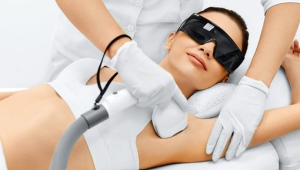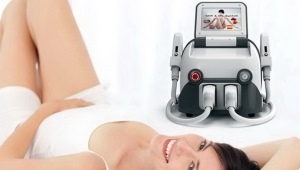Is it possible to do hair removal during pregnancy?

The interesting position of a woman raises a number of questions not only in nutrition, but also in self-care. A frequent question of pregnant women is whether it is possible to do hair removal during pregnancy. Experts say that this provision is not a contraindication, but it is important to follow a few rules. For example, to carry out the procedure exclusively in clean conditions, no matter at home or in a specialized salon, use disposable accessories (gloves, razor, spatulas) and sterile devices. The cleanliness of the room and tools is applicable not only for pregnant and lactating women, but for all girls who decide on the hair removal procedure.

During pregnancy, sensitivity and susceptibility in general increase especially., and any event turns into something special, the attitude changes to "reverent", and the approach becomes incredibly serious. Speaking about the epilation of pregnant women, it is important to take into account their psycho-emotional state and take care of a comfortable climate in the cosmetologist's office.If a pregnant woman dares to self-epilate and thinks about whether it is safe for the health of the baby and herself, we answer - absolutely, if you follow the rules of cleanliness and carry out the procedure in accordance with all standards.
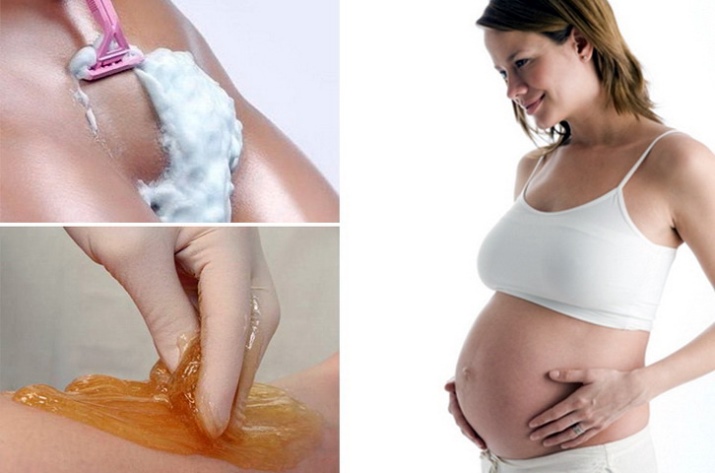
How to remove hair during pregnancy?
Shaving is the easiest, painless and fastest way to get rid of hair, but not the longest lasting.
Shaving is the choice of women with fear of pain before waxing and those who are faced with varicose veins, since waxing is not indicated for serious problems with veins in the legs.

Hair removal during pregnancy is worth it because:
- Hair grows faster during pregnancy - this causes discomfort even in ordinary life, you see. Frequent shaving is not an option. It leads to thinning of the skin and its irritation, so epilation will be an excellent way out of the "hairy" situation.
- Increased skin sensitivity leads to irritationespecially after shaving.
- The woman begins to sweat more intensely, hair retains moisture and sweat, acts as a favorable environment for the development of bacteria and the appearance of an unpleasant odor.
- When the tummy has grown enough, shaving on your own can become a real problem, and sometimes skin cuts with a razor become unavoidable. Then it's time to go to the salon to a proven (at least friends) master.
- To maintain her attractiveness in front of her husband.
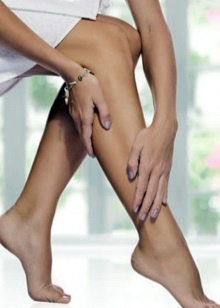

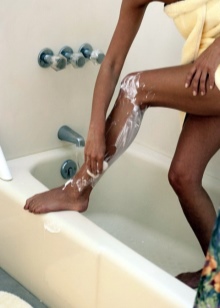
Hair removal options at different times
Let's start with contraindications: laser and photoepilation are not indicated for pregnant women and women who are planning a pregnancy and are actively working on it.Doctors have not yet studied the impact of these methods on the health of the unborn baby, so just exclude them from your list.
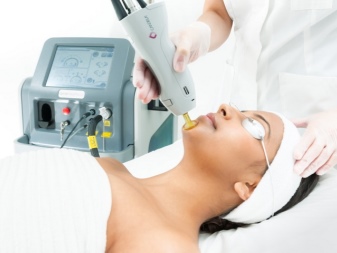
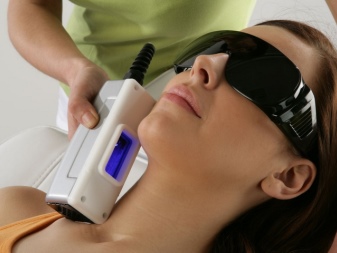
- Depilation. This is a method of superficial hair removal using a razor or a special cream. Here the struggle is with the body of the hair, which is cut or dissolved, but grows back the very next day (if a razor is used). The depilatory cream removes the hair for about 7-10 days, but pregnant women do not always like this procedure - during an interesting situation (and especially if toxicosis is caught), the smell of the cream simply irritates or even causes vomiting.
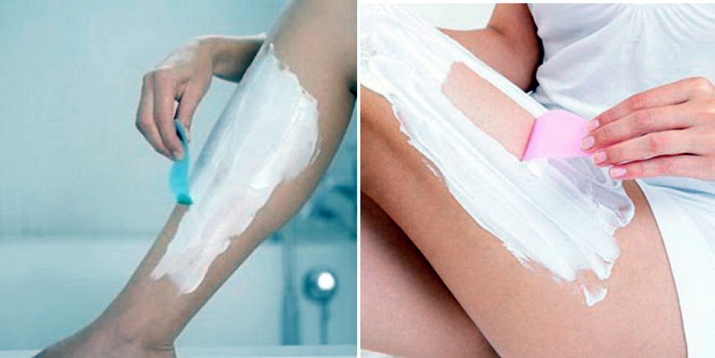
If you have chosen depilation with a cream, choose a product with the least amount of flavors, in a word, “by smell”.
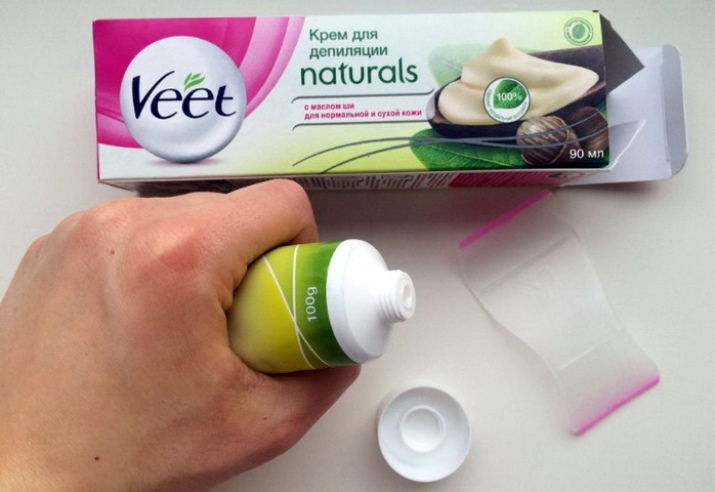
- Epilation. It differs in that during its implementation, the hair follicle is removed and the skin remains smooth for longer - about two weeks. Any epilation is painful: the hair root is closely connected with the nerve endings, and when the bulb is removed, we feel pain. Unpleasant sensations can intensify during pregnancy - almost every woman becomes more sensitive due to changes in hormonal levels.
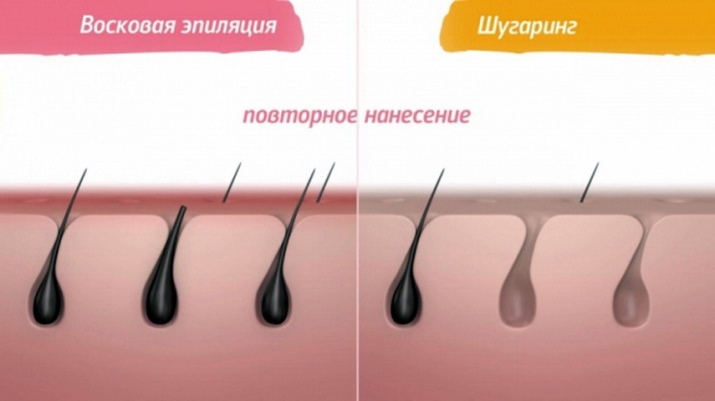
Hair removal with an epilator allows you to carry out the procedure at home. To reduce pain, pre-cool the skin with a compress or use a cooling gel, ointments and creams with an anesthetic effect are prohibited (the substances that make up the cream easily penetrate the placental barrier and may not affect the health of the fetus in the most positive way).
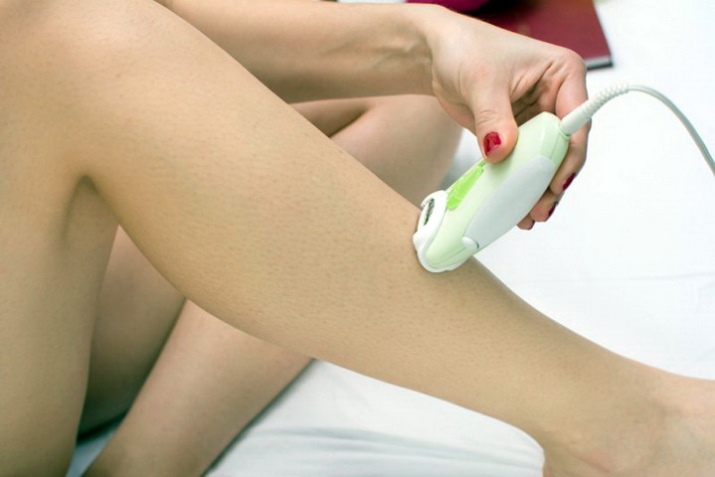
Some devices are sold with a cooling cap to reduce pain.. This type of hair removal is often associated with ingrown hairs, so after each procedure it is recommended to use an anti-ingrown hair cream and do not neglect scrubs. This type of hair removal is suitable for women with a fairly high pain threshold (especially if the procedure is performed for the first time or after a long break), thick skin and prone to ingrown hairs.
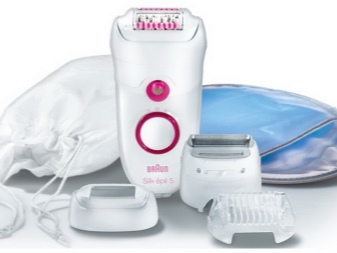

Sugar or wax hair removal is mostly done in a salon.. Be sure to tell the master that you are expecting a baby when the tummy is not yet visible. He, in turn, will treat you even more reverently and exclude any irritating factors, will be interested in your well-being.
When planning pregnancy, in the early and late stages, during breastfeeding, you can do hair removal. You should first do a test for an allergic reaction to wax and sugar, since they are potential allergens, especially if during an interesting position the sensitivity and vulnerability of the skin to cosmetic products has become higher.
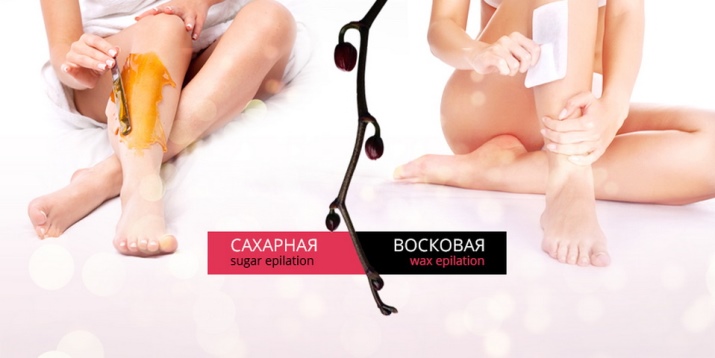
For nursing mothers, the procedure of shugaring or sugar hair removal, electric or conventional hair removal is also not prohibited. The components of the formulations do not affect either the quality or the quantity of breast milk.

Important points:
- In the later stages, any pain can cause uterine tone. It is important to talk about all your feelings to the master, and especially when the stomach seizes and a sharp pain sets in (meaning in the abdomen). If the term is 36-40 weeks, childbirth can begin at any time, but in any case, you will have time to get to the maternity hospital.
- Apply waxing (hot method) is contraindicated in varicose veins and in the later stages. A hot mass can cause discomfort to a woman.
- If you plan to do epilation for the first time, choose an earlier date - you should not go for the procedure at the 40th week, it is better to do it at least at the 20th.


Which method to choose for different areas on the body?
Legs
You can choose any method: epilator, sugar or wax. But if you are overtaken by varicose veins, you need to consult with a gynecologist and always with a phlebologist - on the recommendation of the first or on your own.

Hot wax, together with sharp jerking movements, is not useful for diseased veins.
Bikini
It is preferable to choose a salon procedure and an experienced master, stop at the classic "panty zone". Visit the salon and check which master worked with pregnant women and contact him. A competent specialist will select the optimal composition (with a minimum of chemical and a maximum of natural ingredients), a comfortable temperature of wax or sugar (get ready for a small thermal test) and provide a pleasant environment in general.
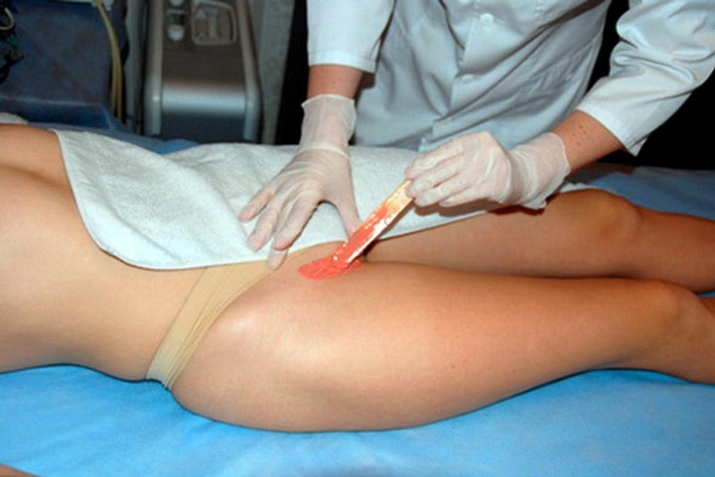
For a long time, during bikini epilation, hold the tummy with your hands - this will calm you and the baby, relieve pain a little. In an intimate place, the skin is especially sensitive, perhaps the master will offer to remove hair along the panty area and not touch the “deep” - labia and intergluteal region.
In any case, epilation of the intimate area is worth doing even during pregnancy, and it is better to do it even before conception. With each procedure, the quality of the hairs changes - they become thinner, softer and more supple, and it will seem like a trifle to remove them during pregnancy.
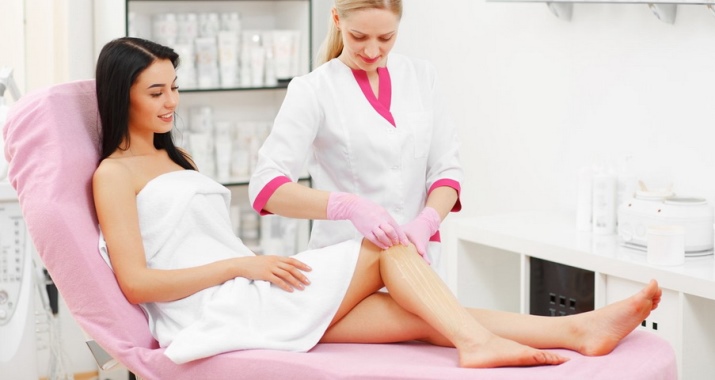
Trust your intimate area only to a master with a medical education and work experience, who works in a sterile clean office, uses the latest fresh formulations. Let the epilation by a specialist cost more, but you must admit that health (including psycho-emotional) is more expensive than a couple of hundred rubles. For a long time, the master may refuse to carry out the procedure - possible inexperience, unwillingness to take responsibility and other reasons can cause a categorical “no”, and this is his right.
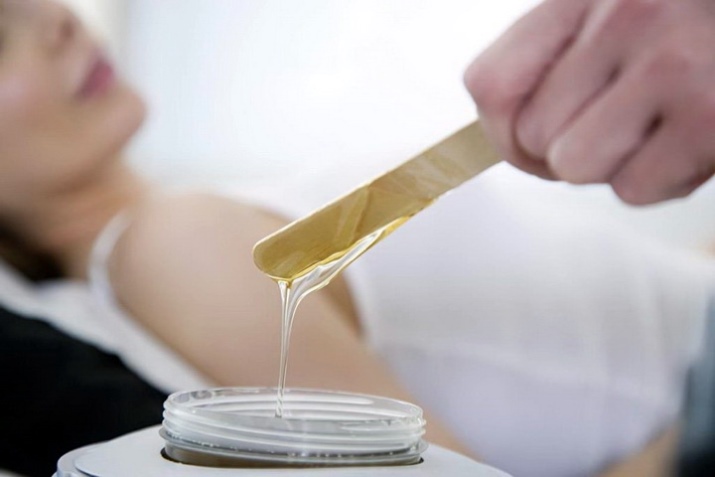
armpits
You should not be afraid to epilate them. Choose any hair removal method at home or in the salon.
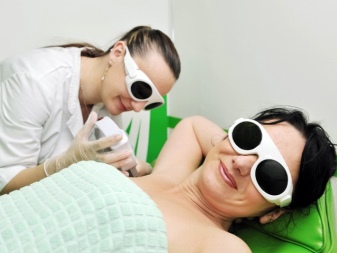

Face
During pregnancy, the hormonal background changes, as a result - the hair can begin to actively fill the face., especially often appear mustaches or hairs on the chin. You can pinch them with tweezers for an infinitely long time or turn to an experienced master who will save you from unpleasant “friends” on your face in 15-20 minutes.
Masters usually offer wax or sugar hair removal - the choice is yours.

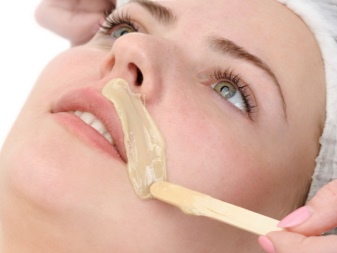
Contraindications
The following types of hair removal are contraindicated for pregnant women:
- Electrolysis. With this method, the hair follicle is destroyed by an electric current. Such "blows" are unsafe for the baby.
- Photoepilation. Nothing is known about its effect on the fetus. Its essence is a flash of light that destroys the structure of the hair follicle and seals the blood vessels (they supply micronutrients to the hair). The hair loses its source of nutrition and falls out, and the recovery period takes from a month to six months.
- Laser hair removal. Also not tested on pregnant women and therefore not recommended. The bottom line is to direct laser light to the hair follicle, which literally “burns out”.
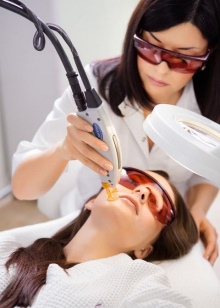
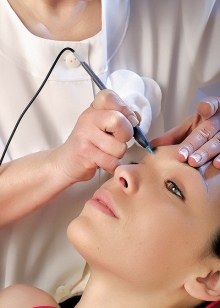

Among the contraindications it is worth noting:
- Violation of the integrity of the skin: for cuts, wounds, abrasions, burns, the procedure should be postponed (on the affected area);
- With varicose veins, waxing on the legs is excluded, you should consult your doctor about possible ways to remove hair from the body or face.
- Diabetes - a serious reason why epilation will have to be postponed. Consultation with a doctor is necessary.
- Herpes and other viral diseasesaffecting parts of the body - a reason to refuse the procedure.
- Allergy. It is impossible to do epilation on the affected areas, for “clean” ones - choose the method of hair removal with an epilator (wax and sugar are potential allergens). In any case, it is worth doing a test for sensitivity to the composition - apply a little money to the bend of the elbow and evaluate the result after 10 minutes.

When not to do?
It is not recommended to carry out the procedure when a woman is under stress - this will cause literally hellish pain during its implementation. Mental and nervous disorders, diseases of the nervous system (for example, epilepsy) are the reasons why epilation should not be performed.
It is forbidden to do waxing, sugaring and epilation with a machine in the bikini area (and any other, if the sensitivity of the skin is too high and any pain is perceived as torture), if there is a threat of miscarriage or premature birth.


Effects
The pain from epilation affects the emotional state of the mother and the unborn baby. The procedure for hair removal "deep bikini" with wax or sugar in the intimate area can lead to an increase in the tone of the uterus - this can be a threat to the health of both.
It is better to start doing the procedure in advance - before the onset of pregnancyso that the body gets used to the painful sensation, which each time will become more tolerant. Each procedure makes the hairs softer and less dense and stiff, even after the first “deep” bikini, the difference is noticeably visible - the hairs lose their dark pigment, grow more slowly.
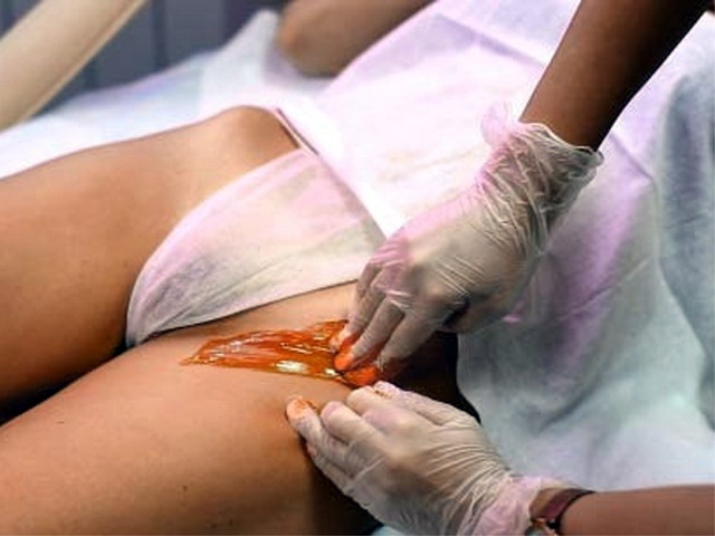
Reviews
On the "mom" forums, the topic of hair removal during pregnancy does not cease to be relevant. Some expectant mothers practice hair removal with a machine (epilator) at home to the last and are not afraid of the doctors' forecast that this can negatively affect the baby. Indeed, if hair removal is done constantly and no matter what method - epilator, wax, sugar, then there are no risks during pregnancy (with its normal course).
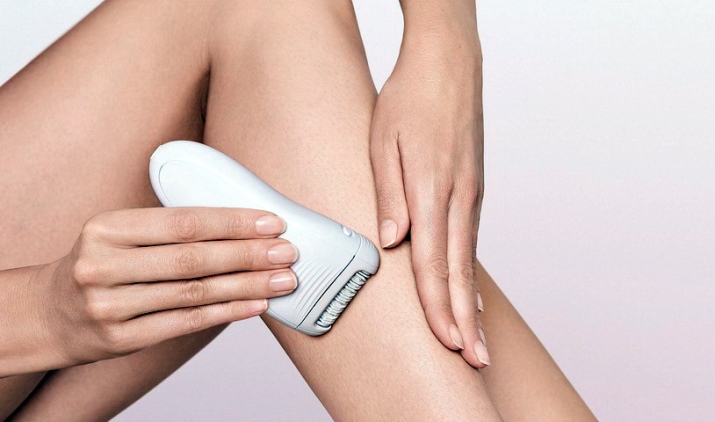
According to doctors, waxing or sugaring for the first time during pregnancy is not worth it. If you have previously practiced hair removal in a similar way, then continue, there is no danger.
Doctors say that hair removal with “hot” methods is prohibited with uterine hypertonicity and a low position of the placenta, its improper attachment and the threat of miscarriage especially. Any pain affects the uterus, it can simply begin to contract and reject the fetus (at a short time) or lead to the onset of childbirth - at a large one. Of course, you are unlikely to give birth on the couch at the beautician during epilation, but this may well cause uterine tone or contractions (for a long time).
It is worth noting that the body of each woman is individual, someone continues to use the epilator or go to the salon for shugaring until the 40th week, and they are not at all scared or even hurt. Others from the mere mention of "epilation" begin to clutch their stomach convulsively.

One of the masters wrote that it is impossible to do a deep bikini during an interesting position - the uterus may begin to contract from pain impulses, however, on women's forums it is easy to find information that future mothers trust their intimate area to masters at any time, including a long one.

Is it possible to do hair removal during pregnancy? The next video is the answer to this question.






















